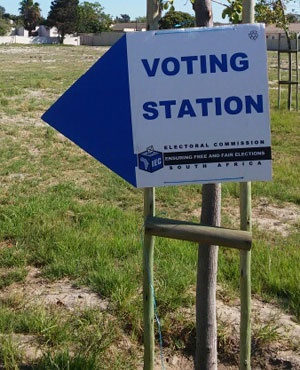
A telling feature of South Africa’s municipal elections is the near-seamless manner in which they blend into the country’s national political narratives.
Whether this involves appeals to socioeconomic transformation, combating corruption, redistributing land, loyalty to the party brand or invoking the images of party leaders – whose names will not appear on ballots on August 3 – an important subtext is that these elections are speaking to something altogether bigger than local governance and the management of service provision. Cynics may consider these polls mere warm-ups as we approach the main event: national elections in 2019. This is unfortunate.
Worldwide, the challenges of contemporary life are increasingly being defined in cities. Not only are cities heaving with unprecedented numbers of people, urban design is also redefining assumptions about the nature of political life. Functional linkages – of economics, ideas, culture and so on – frequently traverse political borders.
Far from being a sideshow of national processes, local politics is ever more the main event. This is particularly profound in Africa. By about 2030, over half of Africa’s population will live in cities and towns.
This figure will increase to 75% of the population of southern Africa – and two-thirds in central, western and northern Africa – by 2050. Four of the world’s megacities will be African by 2050 – Cairo, Lagos, Kinshasa and the Gauteng city-region – while 70% of Africa’s growth will be in secondary cities.
Although the rate and scale of growth in South Africa’s major cities will be more modest – largely because urbanisation began earlier – the country is contending with the expansion of its secondary cities and smaller towns.
Often located around localised industries or transport hubs, these centres provide important links between large cities and the rural hinterland. But as South Africa has found, these centres often lack the infrastructure, amenities and managerial expertise to deal with the governance of urban growth.
Nor do Africa’s cities – large or small – offer the opportunities their growing populations crave.
Historically, urbanisation has been most inclusive (albeit not without setbacks) when it has happened on the back of rapid economic growth and industrialisation – as in Europe and the US in the 19th century, or East Asia in the 20th. Cities provided entrepreneurial residents with the environment to invest and innovate, and a place for the streams of newcomers to find work. Respectable public management converted wealth into tax revenue and high-quality public services.
Africa’s urbanisation has not been associated with this virtuous cycle. Urbanisation is often driven by the hope of finding something better than what a rural life can provide. Africa’s urbanising population is drawn to visions, not existing realities.
South Africa’s cities are no exception. Slow economic growth and increasing populations retard movement away from informality in much of the urban landscape and emphasise deepening inequalities.
Africa’s cities can, and must, turn this around. A first step is to recognise municipal governance as being best placed to steer cities into the future, given its sensitivity to local conditions. Its weaknesses aside, South Africa is a trailblazer, with constitutional recognition and a sophisticated institutional design for its municipalities.
Crucially, it also accords them revenue-raising powers. This is not the case elsewhere on the continent.
Angola, for example, does not have municipal rule but merely the administrative divisions of national government. Despite recognising the potential benefits of decentralisation, many African countries are averse to it. Strong local leaders challenge the control of central governments and add complexity to the management of countries’ finances. As a result, strong local institutions and locally sensitive planning struggle to emerge.
Then there is the raw political dimension. When the Kampala municipality fell to the opposition, Uganda’s government simply introduced a parallel administration, reducing the city council to virtual impotence.
But even if this policy and institutional space were to be provided, Africa’s cities confront extensive deficits in their own administrative and resource capacities. Even where properly constituted municipalities exist, they are often reliant on fiscal transfers from national treasuries.
They must undertake the hard work of constructing the administrative systems, mobilising the resources and rolling out the proper infrastructure – without which the continent’s aspirations in the modern world will be stillborn. These aspirations are reflected in the possibilities of modern technology, in fields as diverse as utilities management, land registration and sanitation.
But each demands the careful consideration of accountable leadership and a competent administration.
Cities will be the battlegrounds where inequality and social disconnection will be fought. South Africa’s mayors and other stakeholders are realising that cities are the key developmental hubs and that how they tackle infrastructure, health and the environment at city level is what matters. That is why city mayors were included at COP21, the climate change summit, in Paris in November – because any global commitments will require cities to play their part. These rapidly altering realities demand that Africans give due attention to the governance of their municipalities.
South Africa’s municipal elections are thus no sideshow. With our more mature cities and stagnant economic growth, accountable and visionary governance of our urban centres is a goal we can ill-afford to miss.
Sidiropoulos is CEO and Corrigan is a research fellow of the SA Institute of International Affairs
Do you agree that municipalities have a huge role to play in SA’s future?
SMS us on 35697 using the keyword CITY. Please include your name and province. SMSes cost R1.50




 Publications
Publications
 Partners
Partners








